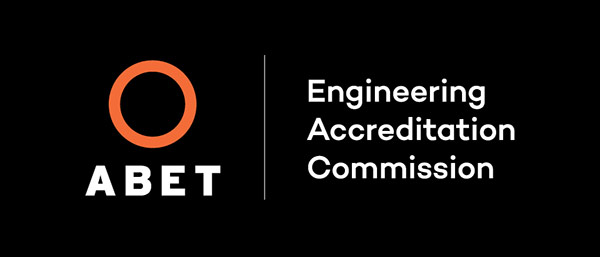Lehigh University has a long-established tradition of excellence in engineering, with one of the oldest electrical engineering programs in the United States. Our undergraduate programs in electrical engineering and computer engineering are accredited by the Engineering Accreditation Commission of ABET, ensuring that these programs meet the quality standards established by the engineering profession.
Accredited by the Engineering Accreditation Commission of ABET, https://www.abet.org, under the commission’s General Criteria and Program Criteria for Electrical, Computer, Communications, Telecommunication(s), and Similarly Named Engineering Programs.
To view enrollment and degree data, click here.
Electrical Engineering
Lehigh University has a long-established tradition of excellence in engineering, with one of the oldest electrical engineering programs in the United States. Our undergraduate electrical engineering program is accredited by the Engineering Accreditation Commission of ABET, ensuring that this program meets the quality standards established by the engineering profession.
Mission Statement for the Electrical Engineering Program
The mission of the Electrical Engineering program is to prepare engineers to meet the challenges of the future, to promote a sense of scholarship, Lehigh University leadership, and service among our graduates, to instill in the students the desire to create, develop, and disseminate new knowledge, and to provide international leadership to the electrical engineering professions.
Program Educational Objectives
It is expected that our alumni will:
-
be valued as dependable and technically proficient electrical engineers across a wide variety of fields, industries, non-profit organizations, national laboratories, entrepreneurial endeavors or in the pursuit of graduate education,
- pursue lifelong learning and professional development to advance their knowledge and skills for successful and rewarding careers,
-
function and communicate effectively individually and in a team environment, contribute to multi-disciplinary projects, and attain leadership positions in their chosen profession, communities, and the global society, and
-
function as responsible members of society with an awareness of the professional responsibilities and the global, social and the ethical ramifications associated with their work.
Student Outcomes
The EE undergraduate Student Outcomes declare that graduates should have:
1. an ability to identify, formulate, and solve complex engineering problems by applying principles of engineering, science, and mathematics
2. an ability to apply engineering design to produce solutions that meet specified needs with consideration of public health, safety, and welfare, as well as global, cultural, social, environmental, and economic factors
3. an ability to communicate effectively with a range of audiences
4. an ability to recognize ethical and professional responsibilities in engineering situations and make informed judgments, which must consider the impact of engineering solutions in global, economic, environmental, and societal contexts
5. an ability to function effectively on a team whose members together provide leadership, create a collaborative and inclusive environment, establish goals, plan tasks, and meet objectives
6. an ability to develop and conduct appropriate experimentation, analyze and interpret data, and use engineering judgment to draw conclusions
7. an ability to acquire and apply new knowledge as needed, using appropriate learning strategies.
 Accredited by the Engineering Accreditation Commission of ABET, https://www.abet.org, under the commission’s General Criteria and Program Criteria for Electrical, Computer, Communications, Telecommunication(s), and Similarly Named Engineering Programs.
Accredited by the Engineering Accreditation Commission of ABET, https://www.abet.org, under the commission’s General Criteria and Program Criteria for Electrical, Computer, Communications, Telecommunication(s), and Similarly Named Engineering Programs.
The Lehigh Computer Engineering undergraduate program has been accredited since 1987. To view enrollment and degree data, click here.
Mission Statement for the Computer Engineering Program
The mission of the Computer Engineering program is to prepare computer engineers to meet the challenges of the future; to promote a sense of scholarship, leadership and service among our graduates; to instill in the students the desire to create, develop, and disseminate new knowledge; and to provide international leadership to the computer engineering profession.
Program Educational Objectives
It is expected that our alumni will:
-
be valued as dependable and technically proficient electrical engineers across a wide variety of fields, industries, non-profit organizations, national laboratories, entrepreneurial endeavors or in the pursuit of graduate education,
- pursue lifelong learning and professional development to advance their knowledge and skills for successful and rewarding careers,
-
function and communicate effectively individually and in a team environment, contribute to multi-disciplinary projects, and attain leadership positions in their chosen profession, communities, and the global society, and
-
function as responsible members of society with an awareness of the professional responsibilities and the global, social and the ethical ramifications associated with their work.
Student Outcomes for Computer Engineering
The Computer Engineering undergraduate Student Outcomes declare that graduates should have:
1. an ability to identify, formulate, and solve complex engineering problems by applying principles of engineering, science, and mathematics
2. an ability to apply engineering design to produce solutions that meet specified needs with consideration of public health, safety, and welfare, as well as global, cultural, social, environmental, and economic factors
3. an ability to communicate effectively with a range of audiences
4. an ability to recognize ethical and professional responsibilities in engineering situations and make informed judgments, which must consider the impact of engineering solutions in global, economic, environmental, and societal contexts
5. an ability to function effectively on a team whose members together provide leadership, create a collaborative and inclusive environment, establish goals, plan tasks, and meet objectives
6. an ability to develop and conduct appropriate experimentation, analyze and interpret data, and use engineering judgment to draw conclusions
7. an ability to acquire and apply new knowledge as needed, using appropriate learning strategies.
The Computer Engineering curriculum and the steps taken to effectively implement this curriculum are the main vehicles to ensure that program outcome criteria, and ultimately program educational objectives, are met.
